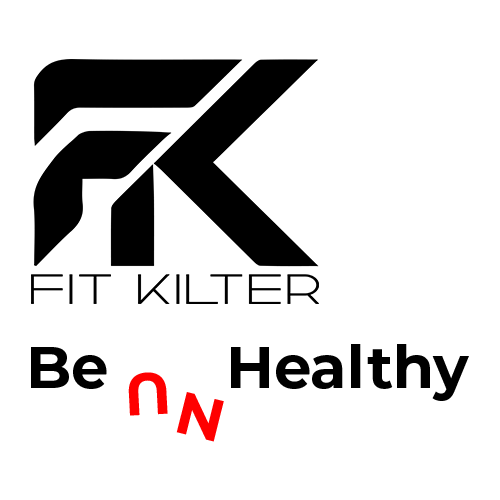Introduction:
Cholecalciferol, commonly known as vitamin D3, plays a pivotal role in maintaining optimal health, particularly in the realm of bone health and immune function. Often referred to as the “sunshine vitamin,” cholecalciferol is synthesized in the skin in response to sunlight exposure. In this detailed blog, we will delve into the origins, functions, sources, recommended intake, health benefits, and considerations surrounding cholecalciferol.
The Origins of Cholecalciferol:
Sunlight Synthesis:
- Sunshine Conversion:
- Cholecalciferol is produced in the skin when ultraviolet B (UVB) rays from sunlight interact with 7-dehydrocholesterol, a compound present in the skin.
- Liver and Kidneys:
- The synthesized cholecalciferol undergoes metabolic transformations in the liver and kidneys to become the active form of vitamin D.
Functions of Cholecalciferol:
Calcium and Phosphorus Regulation:
- Calcium Absorption:
- Cholecalciferol enhances the absorption of calcium from the small intestine, crucial for bone health.
- Bone Mineralization:
- Vitamin D aids in the mineralization of bones by facilitating the incorporation of calcium and phosphorus.
Immune System Support:
- Immune Cell Modulation:
- Cholecalciferol may play a role in modulating immune cell function, contributing to the body’s defense against infections.
- Autoimmune Conditions:
- Some research suggests a potential link between vitamin D deficiency and an increased risk of autoimmune diseases.
Cell Growth and Differentiation:
- Cellular Regulation:
- Vitamin D is involved in the regulation of cell growth and differentiation, influencing various tissues and organs in the body.
- Cancer Prevention:
- Adequate cholecalciferol levels have been associated with a potential lower risk of certain cancers.
Sources of Cholecalciferol:
Sunlight Exposure:
- Natural Synthesis:
- The primary source of cholecalciferol is sunlight exposure, with the skin producing vitamin D in response to UVB rays.
- Duration and Intensity:
- Factors such as the duration and intensity of sunlight exposure, skin pigmentation, and geographic location influence vitamin D synthesis.
Dietary Sources:
- Fatty Fish:
- Salmon, mackerel, and tuna are rich sources of cholecalciferol.
- Egg Yolks:
- Egg yolks contain vitamin D, particularly if the hens are raised on vitamin D-enriched feed.
- Fortified Foods:
- Certain foods, such as milk, orange juice, and cereals, are often fortified with cholecalciferol to enhance dietary intake.
Recommended Intake:
Adequate Intake Levels:
- Age and Life Stage:
- Recommended cholecalciferol intake varies with age and life stage, with higher requirements during periods of growth, pregnancy, and lactation.
- Geographic Considerations:
- Individuals in regions with limited sunlight may need to rely more on dietary sources or supplements to meet vitamin D needs.
Dietary Supplements:
- Supplemental Forms:
- Cholecalciferol is available in supplement form and is often recommended for individuals at risk of deficiency.
- Medical Guidance:
- It’s essential to consult with healthcare professionals for personalized advice on vitamin D supplementation, as excessive intake can lead to toxicity.
Health Benefits of Cholecalciferol:
Bone Health:
- Prevention of Rickets:
- Adequate cholecalciferol prevents conditions like rickets in children, characterized by weakened and deformed bones.
- Osteoporosis Prevention:
- Vitamin D contributes to bone density and helps prevent osteoporosis in adults.
Immune System Support:
- Respiratory Infections:
- Some studies suggest a potential role in reducing the risk of respiratory infections.
- Autoimmune Conditions:
- Adequate cholecalciferol levels may be associated with a lower risk of autoimmune diseases.
Mental Health:
- Mood Regulation:
- Vitamin D may play a role in mood regulation, and deficiency has been linked to conditions like Seasonal Affective Disorder (SAD).
- Cognitive Function:
- Some research suggests a potential link between vitamin D status and cognitive function.
Considerations and Precautions:
Sun Safety:
- Moderation:
- While sunlight is a natural source, it’s crucial to balance sun exposure for vitamin D synthesis with precautions to avoid skin damage.
- Sunscreen Use:
- Sunscreen, while important for skin protection, can limit vitamin D synthesis. A balance between protection and synthesis is key.
Dietary Considerations:
- Fortified Foods:
- Include fortified foods in the diet, especially for individuals with limited sun exposure or dietary restrictions.
- Supplementation:
- Supplements should be taken under medical guidance to avoid excessive intake and potential toxicity.
Conclusion:
Cholecalciferol, the sunshine vitamin, serves as a crucial player in maintaining overall health. From its synthesis in response to sunlight to its diverse functions in the body, this vitamin is indispensable. Whether contributing to bone health, supporting the immune system, or playing a role in mental well-being, cholecalciferol stands as a testament to the intricate relationship between our bodies and the environment. As we continue to unveil the mysteries of this vital nutrient, the importance of balance and informed choices remains at the forefront of promoting optimal health.













